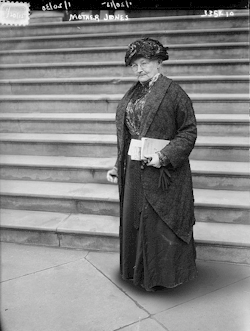A student in my Cognitive Processes and Decision Making course recently asked me this question:
Authored by: T.D.
Authored on: Aug 31, 2012 11:09 AM
Subject: Re: THE WORLD OF UNDERSTANDING THE HUMAN BRAIN
Dr. Raine, do you think cognitive science and cognitive psychology can explain why people seem to attract certain types of individuals? For example, why does it seem habitual for people to enter into abusive relationships?
Excellent question! The answer is: Absolutely. It is definitely related to implicit memory (the long-term memory we have, but are not explicitly aware of having). Here is how Wikipedia defines implicit memory: "Implicit memory is a type of memory in which previous experiences aid in the performance of a task without conscious awareness of these previous experiences." If you think of riding a bike, that is a type of procedural memory, which is a type of implicit memory.
So how does that relate to behavioral patterns?
Well, notice that implicit memory aids us in performance of tasks. Sometimes these are physical tasks (that is when we call it procedural memory), like riding a bike or dancing or putting on mascara. Sometimes, these implicit memories are less physical and more emotional or cognitive, like how to solve a physics problem, how to put out a fire if you're a fireman, how to get from point A to point B in a maze task, knowing that someone always hurts you when you shake their hand, knowing that Pavlov will give food when he rings a bell, knowing that when you see a certain person, you generally feel happy... etc, etc. These are all examples of implicit memories.
See the image of memory types here (in a new window).
There are all kinds of ways that implicit memories can play into behavior patterns because they basically define what kinds of rote knowledge we have. To add complexity to this, our implicit knowledge is the type we don't know we have!! There are clever ways to test implicit knowledge, like priming (see the Wikipedia entry on implicit memory, also linked above). The IAT test also claims to test implicit memory. Another factor that makes implicit memory's effect on our behavior a little tricky is that although it is efficient (a good thing), it is also incredibly flawed (a very bad thing).
When our implicit memory falsely links two things together and thinks they are associated, we might develop inaccurate stereotypes or prejudices, wherein we think good people are bad because of some error in associations and thinking. This is a very sad side effect of implicit memory, and can be overcome by thinking logically and as a reasonable person. Especially prejudices. It is hard to be prejudice against a group of people if you think about things logically. That is why prejudice is such an ignorant display of poor character.
Implicit memory can also have an alternate effect. That is, sometimes when someone is actually harmful to us, we might repeatedly return to them without realizing what we are doing. This is a more difficult pattern to break, and is not easily broken by thinking through things. When our implicit memory remembers relationships with certain character traits, we are not consciously aware of it. Therapy is probably the best way to break this pattern.
Now for why it could occur: Imagine two abusive men, who physically harm women they are in relationships with. At first the men do all kinds of nice things, like bringing flowers, going to shows, etc. There are also probably other little minor things these men might have in common. Little things that you can't explicitly, consciously notice. Like a "look in the eye" or minor gestures or facial expressions that occur on the milisecond level. Those are the kinds of things that affect our attraction to individuals, and they also affect our implicit memory.
One more related factor: if you are familiar with something, you are more likely to like it!
This is why political smudge campaigns don't work! If you see a commercial on TV over and over again, and that commercial is of candidate X, even if it says bad things about candidate X, you will still like that candidate just because of the commercial! Because familiarity does not breed contempt. In fact, familiarity makes us like things more, even if they are bad for us.
So all of those familiar gestures and facial expressions, although not consciously detected, will impact how attracted we are to a person! Whew! What a conundrum, right?
If you know anyone in any kind of abusive relationship or abusive behavior pattern, please seek help. A good place to start is the University of Memphis Counseling Services. Even if you are not in the area, please call them and they will help you locate help near you.





